www.nature.com/articles/s41...
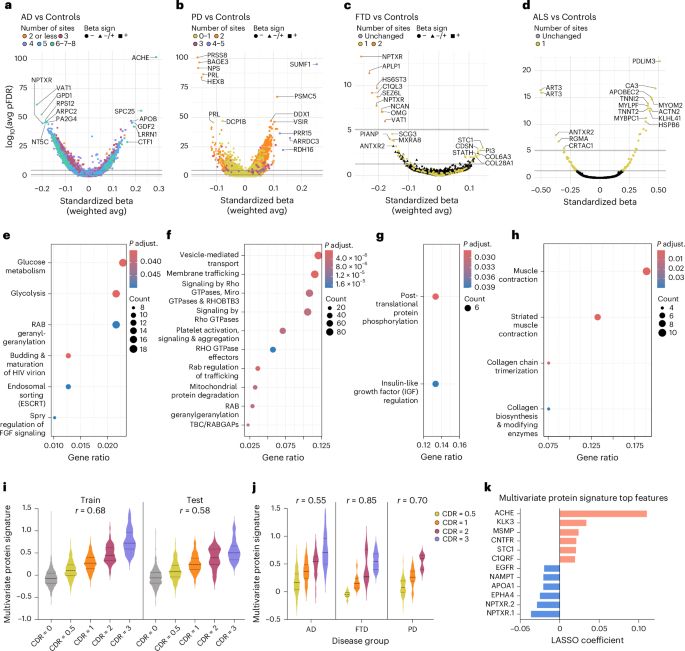
www.nature.com/articles/s41...
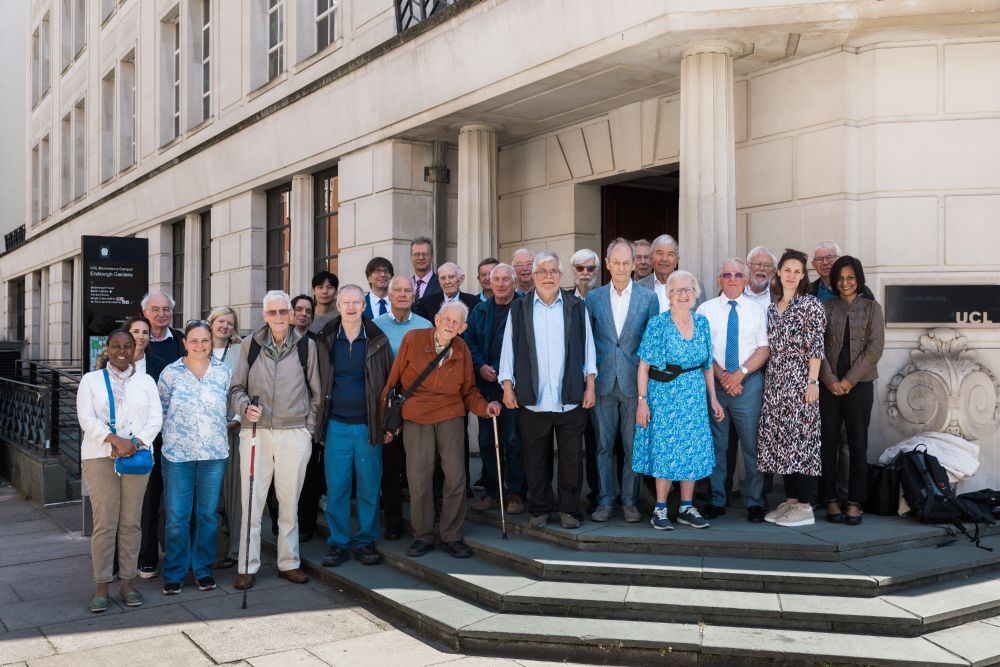
www.thelancet.com/journals/lan...

www.thelancet.com/journals/lan...
1. Sustained reduction during midlife improved survival and reduced chronic diseases jamanetwork.com/journals/jam...
2. A randomized trial found patient-to-patient care was more effective than professional for weight loss and less CV risk jamanetwork.com/journals/jam...
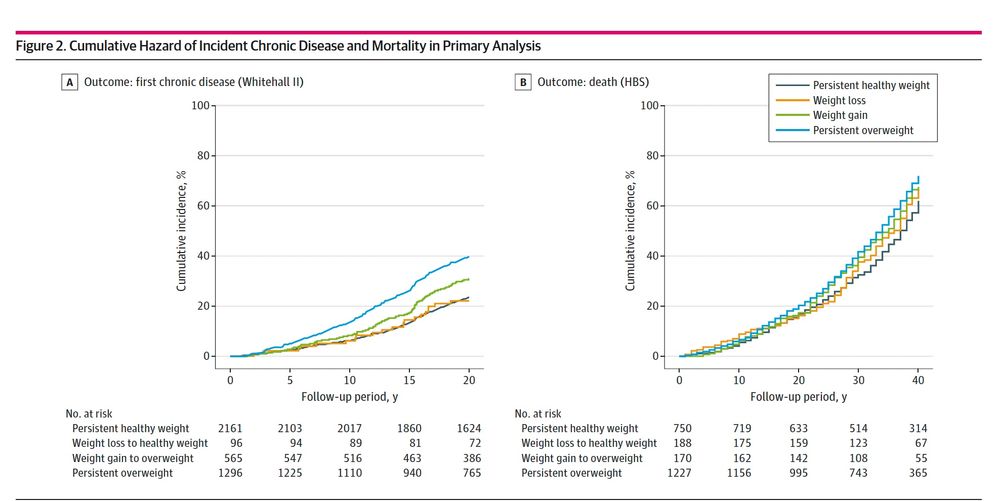
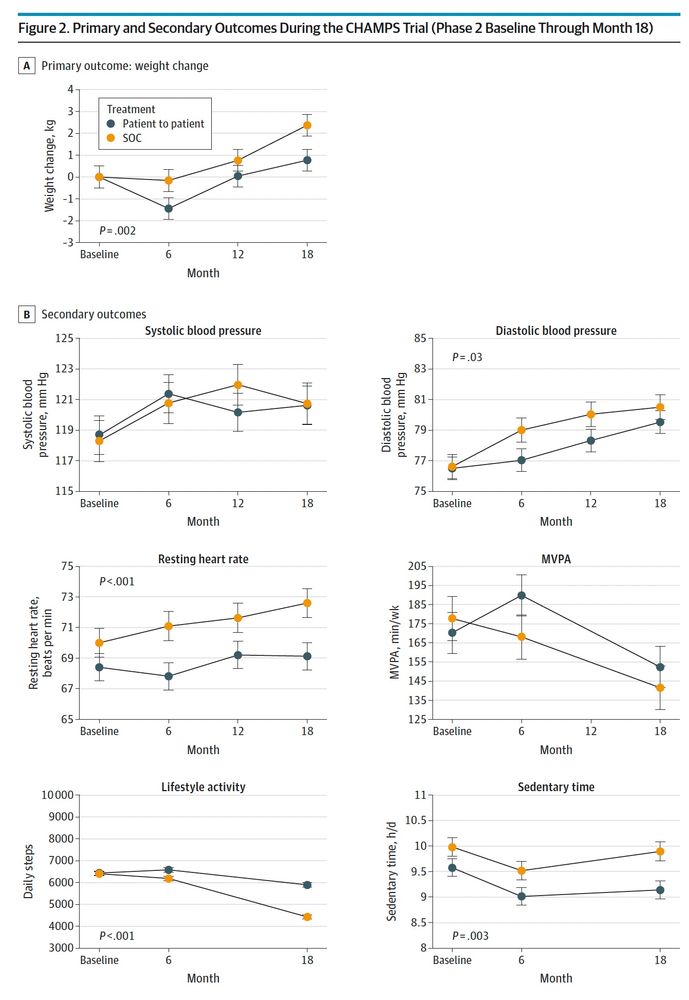
1. Sustained reduction during midlife improved survival and reduced chronic diseases jamanetwork.com/journals/jam...
2. A randomized trial found patient-to-patient care was more effective than professional for weight loss and less CV risk jamanetwork.com/journals/jam...
jamanetwork.com/journals/jam...
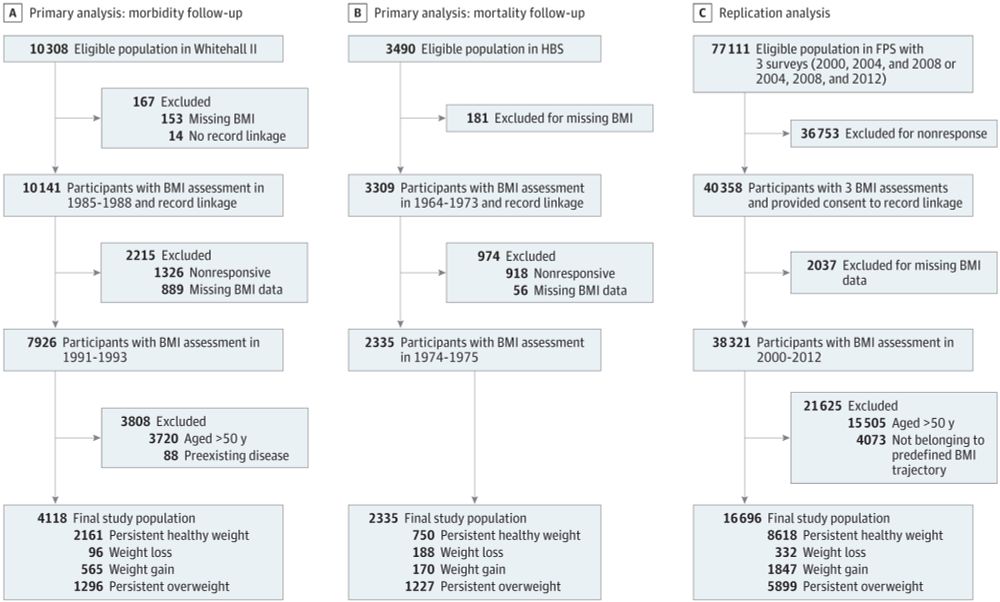
jamanetwork.com/journals/jam...
(it's free, with transcript)
erictopol.substack.com/p/sir-john-b...
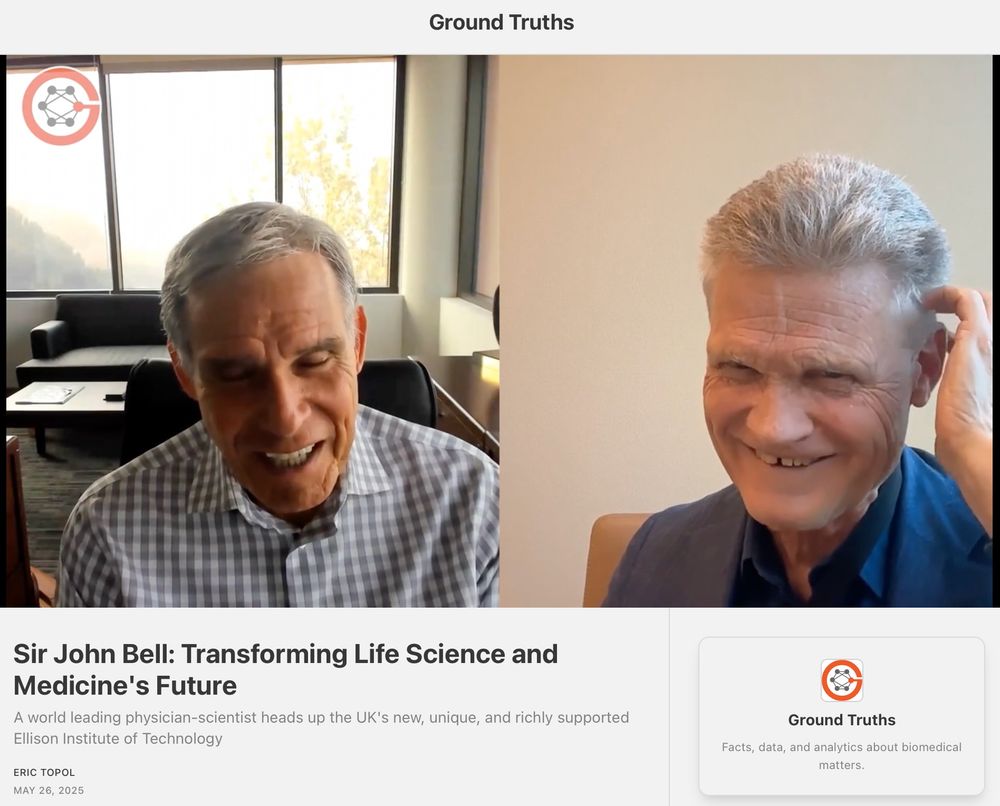
(it's free, with transcript)
erictopol.substack.com/p/sir-john-b...
link.springer.com/content/pdf/...
link.springer.com/content/pdf/...
link.springer.com/article/10.1...

link.springer.com/article/10.1...
My summary Table. More here on dementia erictopol.substack.com/p/the-shingl...
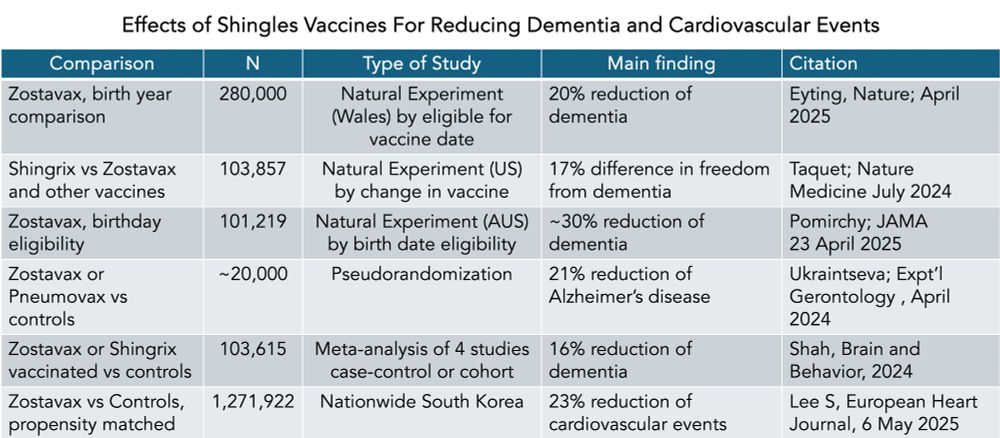
My summary Table. More here on dementia erictopol.substack.com/p/the-shingl...
gift link
www.wsj.com/health/welln...

gift link
www.wsj.com/health/welln...
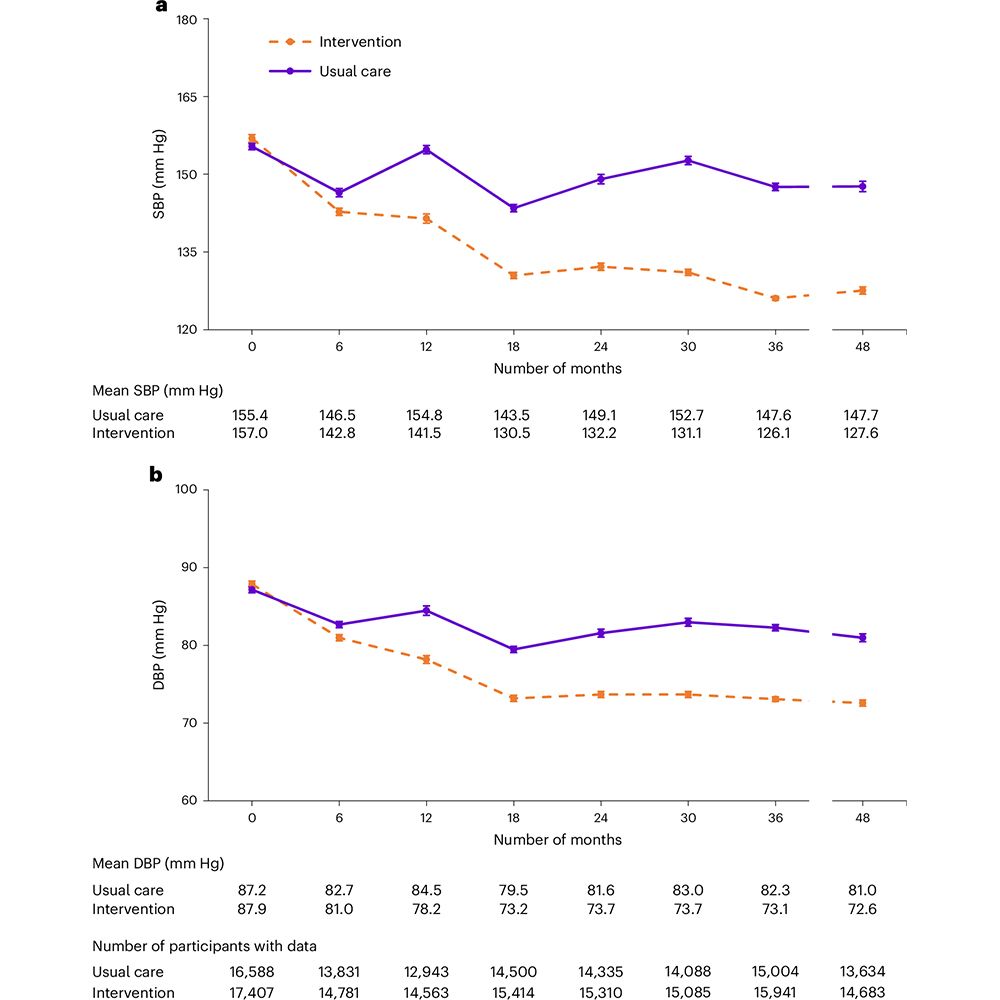

Watch and learn more, then read the full JAMA Viewpoint on the changing story of the dementia epidemic. jamanetwork.com/journals/jam...
Watch and learn more, then read the full JAMA Viewpoint on the changing story of the dementia epidemic. jamanetwork.com/journals/jam...
Beyond that, all attempts to contact X to rectify the matter go nowhere.
If you have an account there, and get the chance, please post so people will know. Thanks!
Beyond that, all attempts to contact X to rectify the matter go nowhere.
If you have an account there, and get the chance, please post so people will know. Thanks!
In the wake of observational studies showing some protection from the vaccines vs. shingles
www.economist.com/science-and-...
Unclear, but an ongoing clinical trial of valacyclovir, an anti-viral, may help to resolve

In the wake of observational studies showing some protection from the vaccines vs. shingles
www.economist.com/science-and-...
Unclear, but an ongoing clinical trial of valacyclovir, an anti-viral, may help to resolve
www.nature.com/articles/s41...
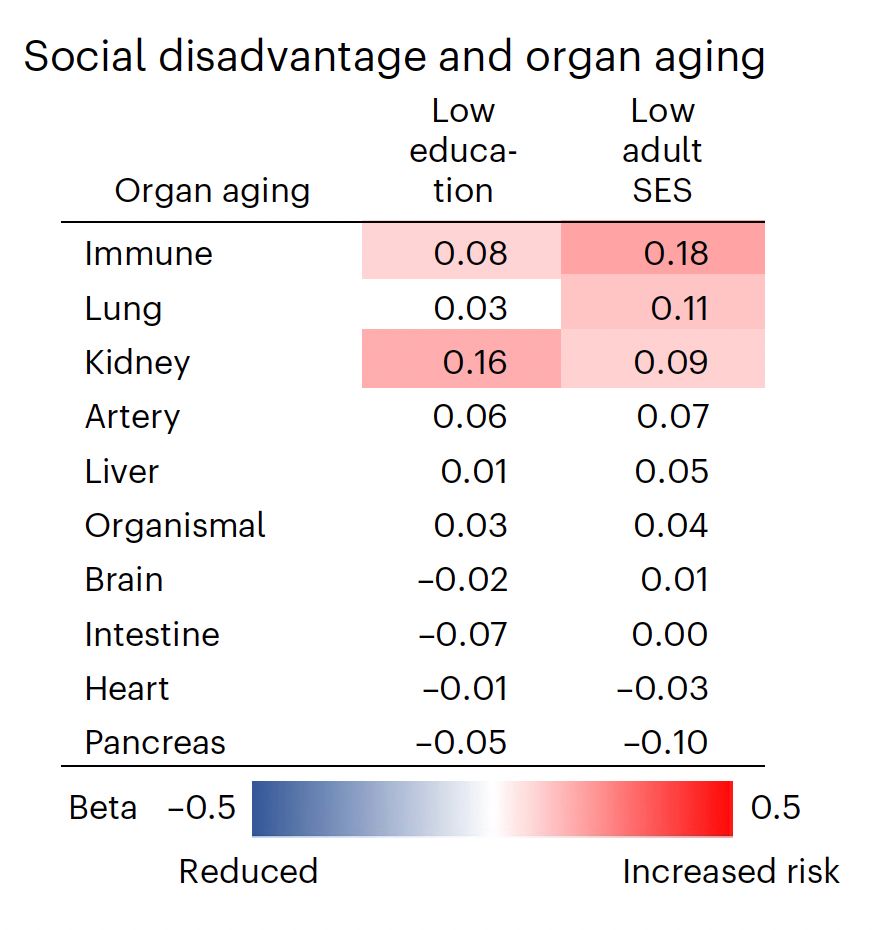
www.nature.com/articles/s41...
#Aging #SocialDeterminants #NFkB
rdcu.be/edyqo
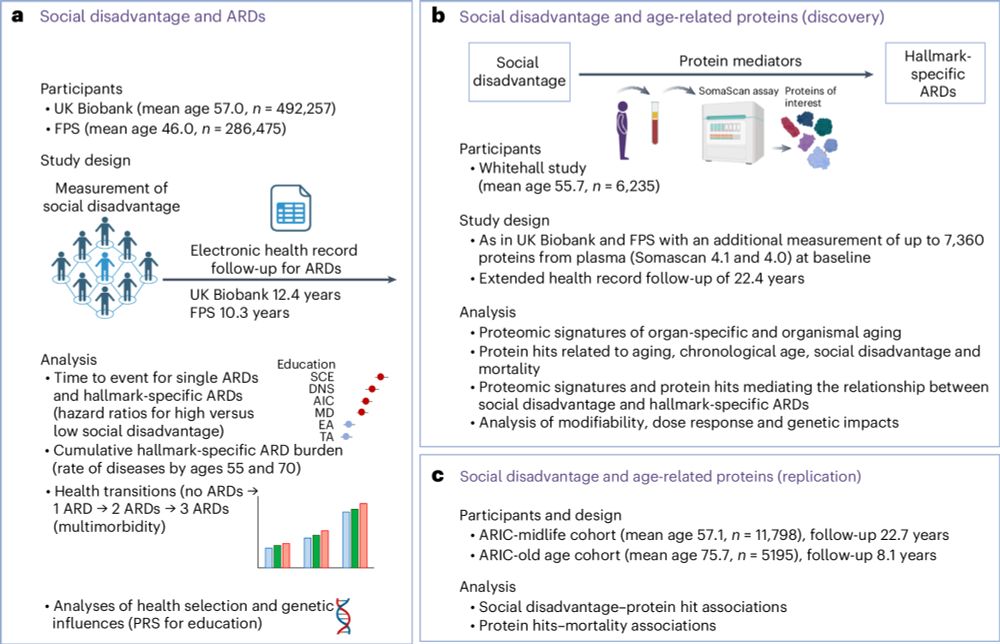
#Aging #SocialDeterminants #NFkB
rdcu.be/edyqo
–Countries with lower GDP saw a greater loss of years of life
–Higher vaccination coverage was linked to fewer years of life lost—independent of GDP
#PublicHealth #Vaccination
journals.plos.org/plosmedicine...

–Countries with lower GDP saw a greater loss of years of life
–Higher vaccination coverage was linked to fewer years of life lost—independent of GDP
#PublicHealth #Vaccination
journals.plos.org/plosmedicine...
journals.plos.org/plosmedicine...


journals.plos.org/plosmedicine...
www.thelancet.com/journals/lan...
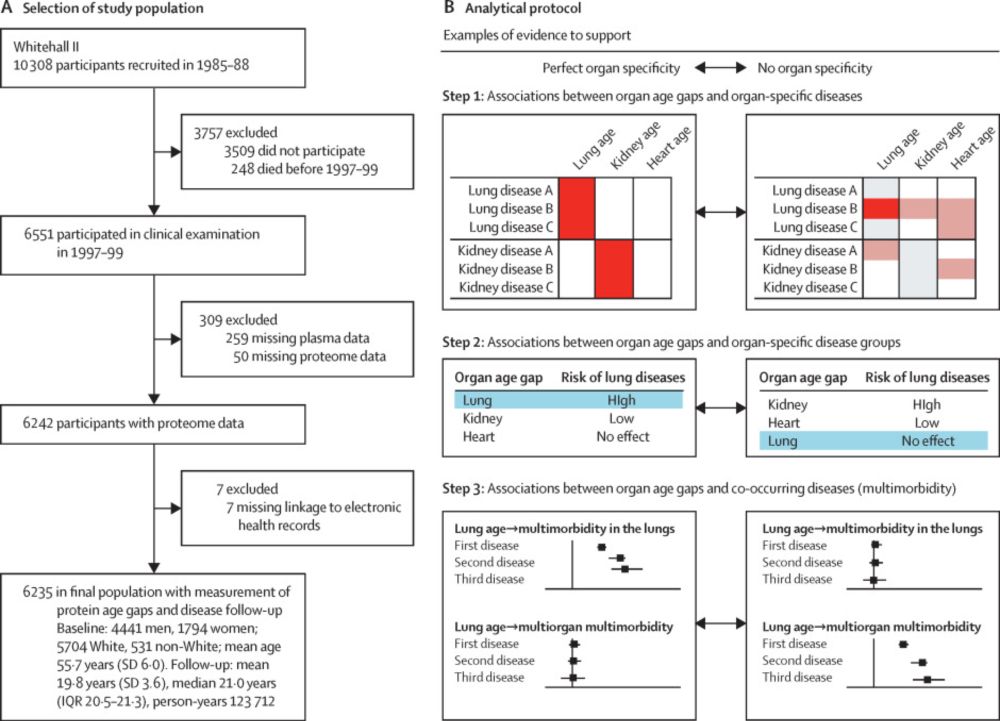
www.thelancet.com/journals/lan...
www.thelancet.com/journals/lan...
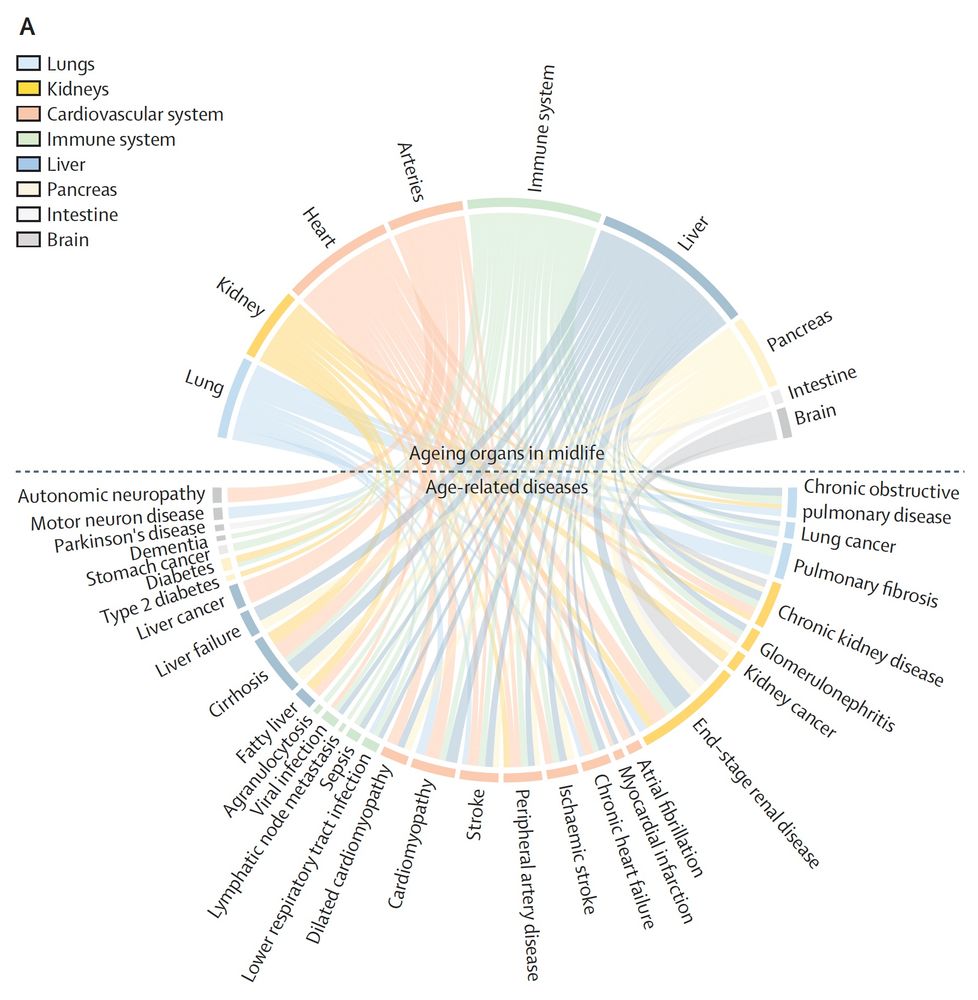
www.thelancet.com/journals/lan...
www.nature.com/articles/s41...
open-access
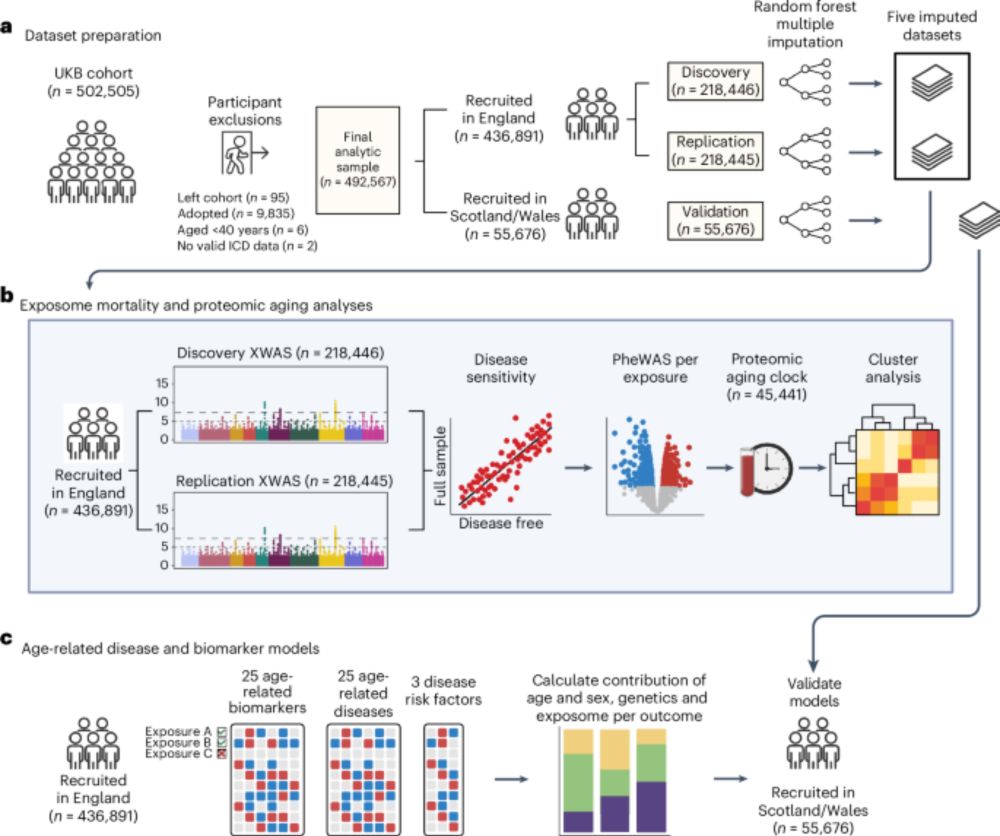
www.nature.com/articles/s41...
open-access
www.cell.com/cell-systems...

"Bluesky is much better for science. There is much less toxicity, misinformation, and distractions."
www.nature.com/articles/d41...
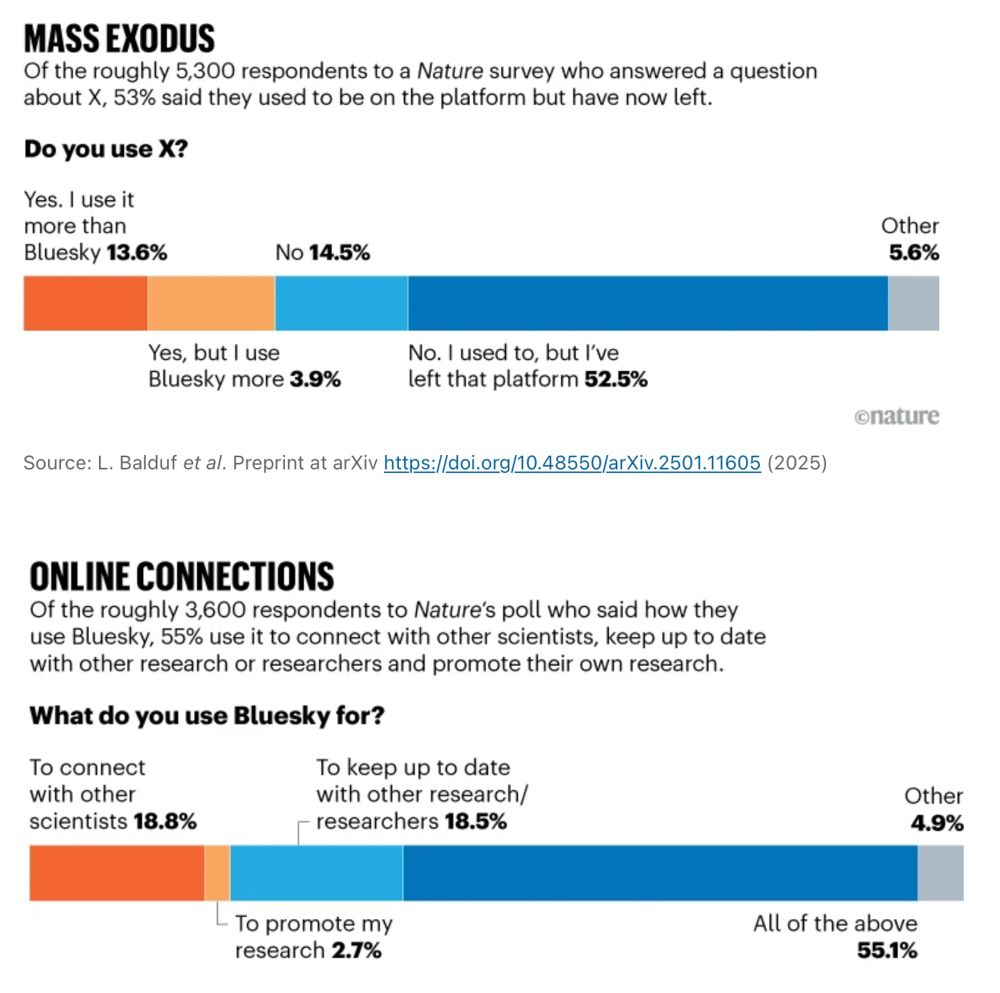
💡 Boosting physical activity may reduce health disparities.
Read more: www.thelancet.com/journals/lan...

💡 Boosting physical activity may reduce health disparities.
Read more: www.thelancet.com/journals/lan...

